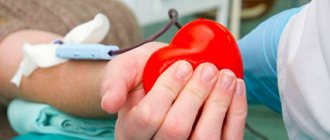There are still many rumors about the benefits and harms of coffee. But almost every woman loves to drink a cup of aromatic strong drink in the morning. For many, this is a real morning ritual. Some people prefer to brew ground coffee in a Turkish coffee pot, while others enjoy a delicious latte. After a woman finds out that in 9 months she will become a mother, a lot changes in her subconscious. She begins to worry so that her habits do not harm the health of the unborn baby. An important question arises for many: can pregnant women drink coffee?
The effect of coffee on the female body
Coffee is a tonic drink that can quickly drive away sleep and energize you. It contains a large amount of aromatic substances that give the drink a unique aroma.
You can drink no more than 4 cups of coffee per day
The composition also contains alkaloids - tonic compounds that provide a surge of energy after each cup of coffee. An important place among them is caffeine, the concentration of which depends on the type of coffee. On average, one coffee spoon of ground coffee contains approximately 0.2 g of caffeine.
The aromatic product also contains many vitamins, mineral salts and carbohydrates. It is worth noting that the chemical composition of coffee beans is not fully understood, for this reason most of the components have not yet been identified.
Interesting fact: 100 g of coffee can provide 50% of a person’s daily needs for riboflavin, phosphorus, iron and vitamin D; up to 20% - carbohydrates, amino acids, calcium and sodium; up to 132% of the daily value of nicotinic acid.
Such a rich chemical composition has both benefits and harm to the human body. Its effect on a woman directly depends on the volume of drink consumed and the personal characteristics of the body.
The benefits of coffee when consumed in moderation (no more than 3 cups per day) are due to the fact that the product:
- improves mood;
- charges with positive energy;
- enhances concentration and performance;
- prevents the development of caries;
- activates intestinal function;
- normalizes the condition of vegetative-vascular dystonia, hypotension;
- exhibits antioxidant effects;
- minimizes the likelihood of the formation of malignant tumors and cardiovascular pathologies;
- improves the condition during exacerbation of bronchial asthma.
Sometimes coffee becomes the safest product for low blood pressure, especially in the early stages of pregnancy.
Effect on the pregnant woman's body
If you have frequent migraines, you should give up coffee.
Not all pregnant women can drink the drink. The effect of coffee on the development of pregnancy is underestimated by many. Meanwhile, those who suffer from hypertension, migraine attacks, urolithiasis, and problems with kidney function should not drink the drink. Caffeine intake during pregnancy can cause cardiac arrhythmia and vascular problems. Caffeine also flushes out necessary substances from the body of the expectant mother, the deficiency of which will negatively affect the development of the fetus. First of all, calcium and iron are washed out. In the absence of sufficient calcium, abnormal development of the fetal skeleton may begin. With a lack of iron, the body cells of both mother and child suffer from oxygen starvation.
Scientists have proven that excessive consumption of caffeine-containing drinks has a negative impact on the process of conception. Those couples who drank more than five cups a day could not conceive a child for a long time.
The drink is strictly contraindicated for pregnant women in the following cases:
- Anemia;
- Hypertension;
- Tendency to migraines;
- Toxicosis;
- Increased nervousness, excitability, tearfulness;
- Insomnia;
- Problems with fetal development.
Soluble
Now manufacturers have learned to produce instant drinks of fairly high quality, using natural raw materials and the latest technologies. But a huge disadvantage is that during the processing process, almost no beneficial properties of natural grains were preserved.
The soluble powder is easy to prepare; you just need to pour boiling water over a couple of tablespoons of the powder. But it is better to refrain from using it - there is no benefit there.
Can pregnant women have 3 in 1 coffee?
The mixture of instant coffee, sugar and cream contains quite a lot of harmful additives, so not only pregnant women, but all people should not consume this product.
3 in 1 coffee contains many harmful additives
Black
Drinking natural black coffee during pregnancy is allowed if it is a high quality product. Concentration does not have to be strong. Black coffee contains caffeine, so you should be careful and careful when consuming it. Preference is given to lightly roasted beans. You can add a spoonful of sugar or honey to the cup if the expectant mother's blood sugar levels do not exceed the norm.
Cafein free
There is no decaffeinated coffee, so the colorful labels on the packaging are just a marketing ploy. The beans are specially processed to reduce the concentration of caffeine, but it is impossible to completely get rid of it. This is not only a useless product, but it also poses a threat to the health of mother and baby. For pregnant women, it is better to replace decaffeinated coffee with a natural product.
With milk
If during pregnancy a girl cannot refuse to drink the drink, she should choose coffee with milk. Firstly, milk contains calcium, which is so necessary for the body of the expectant mother. And secondly, it reduces the concentration of caffeine. You are also allowed to drink the natural product with cream.
Is it possible to have a latte during pregnancy?
Expectant mothers can have latte, cappuccino, and macchiato, but you should know that they are high in calories. If you gain too much weight, it is better to give up these drinks.
Instant or ground coffee - which is safer?
Any drink should not be drunk on an empty stomach, since coffee provokes the production of gastric juice. Because instant powder is highly acidic, it will cause more harm if you drink a cup on an empty stomach. The soluble powder contains preservatives, so you should definitely give preference to a natural drink. A cup of brewed natural coffee will bring moments of happiness and peace to a pregnant woman. And if it’s good for the mother, then it’s good for the baby too!
Benefits and harms
In the absence of health problems and moderate consumption of the drink, it does not cause harm to health, but only brings benefits. Expectant mothers suffering from hypotension and vegetative-vascular dystonia can drink weak coffee only in the morning after breakfast.
It is useful to drink the drink in the 2nd trimester, especially if the pregnant woman experiences swelling. Coffee beans have a good diuretic effect, which removes excess fluid from the body, eliminating swelling. This technique is acceptable in the absence of gestosis, anemia and protein in the urine.
This is where the beneficial qualities of coffee for pregnant women end. Harm from the drink can occur at any stage of pregnancy, including the 3rd trimester, and is expressed in the following:
- Due to the diuretic effect, calcium, phosphorus and potassium are washed out of the body. This is fraught with problems with skeletal development in the fetus and osteoporosis in the pregnant woman.
- If you drink more than 4 cups of coffee per day in the second trimester, this can lead to low birth weight of the baby.
- Caffeine increases blood pressure, which causes the blood vessels and vascular cells of the placenta to narrow. All this leads to fetal hypoxia and fetoplacental insufficiency.
- All substances contained in coffee are able to penetrate the placental barrier, causing a change in the child’s heart rate.
- If you drink coffee with hypertension, it can cause a miscarriage.
- An overdose of caffeine provokes nervous tension in a pregnant woman, as well as sleep disturbances, aggressiveness, anxiety and irritability.
Harm or benefit of coffee during pregnancy
Opinions about the benefits or harms of coffee still vary, especially when it comes to pregnant women. The caffeine contained in this drink has a strong effect on the body. It is believed that women who frequently drink coffee during pregnancy may give birth to underweight children. But sometimes this drink helps fight various kinds of ailments. In order not to harm either yourself or the child, it is better to consult a doctor.
Why pregnant women have different attitudes towards coffee
In the case when a woman was indifferent to coffee before conception, then, as a rule, nothing changes during the period of bearing a child. And in some cases, its intolerance may even be observed, especially during toxicosis. The smell of coffee can cause loss of consciousness, slight malaise and even vomiting.
German scientists have conducted studies according to which women who drink coffee often have problems conceiving. It is for this reason that at the planning stage of pregnancy it is better to remove this drink from your diet.
But why are some women unable to deny themselves coffee, consuming it in large quantities? This is due to several reasons:
- The desire to regularly receive energy “recharging”. It may not seem true to you that coffee is just as addictive as cigarettes and energy drinks. After caffeine enters the body, it is absorbed into the bloodstream and reaches the brain, stimulating the synthesis of dopamine, a neurotransmitter that causes a feeling of joy and cheerfulness. This effect lasts only a couple of hours, after which the body requires an additional portion of caffeine.
- Lack of iron in the body - this condition provokes hypoxia in the pregnant woman and fetus, loss of strength and deterioration in well-being. In such a case, you should consult a doctor, if the diagnosis is confirmed, undergo the necessary treatment, and not improve your well-being with a coffee drink.
Coffee is an invigorating drink that has contraindications
Coffee addiction
Even if coffee has become your habit and you can safely call it an addiction, during pregnancy you need to focus on the health of your unborn child. Therefore, when trying to get rid of a bad habit, think every time about your future and the future of your child. Try replacing coffee with another tasty and healthier drink. These can easily include juice, yogurt or weak cocoa with milk.
If the desire to drink aromatic coffee appears very often, try to shift your thoughts in a different direction - distract yourself with exercise, sports, walks in the fresh air.
Try to wean yourself off coffee for these nine months. This will be easier and easier if you maintain your blood sugar levels. To do this, you will need to eat foods rich in carbohydrates and proteins - preferably in small but frequent portions.
How much coffee can I have?
Pregnancy is a period when you need to be careful about your diet and health. If before conception a woman could afford to lead an unhealthy lifestyle and eat unhealthy, now she cannot do this. Experts recommend avoiding coffee during pregnancy, as it has a negative effect on the pregnant woman’s body and the condition of the fetus.
According to studies, excessive consumption of an aromatic drink in the early stages of pregnancy can lead to miscarriage, and in later stages it can cause premature birth. But such consequences arise only when the pregnant woman drinks a really lot of coffee. For example, a cup of coffee drunk because of low blood pressure will not lead to such complications.
To answer the question of whether pregnant women can drink coffee, scientists from Denmark conducted an experiment. According to the results obtained, a pregnant woman can drink up to 150 mg of coffee without harm to her health. This volume of product will improve your well-being, give you energy, raise your blood pressure and will not affect the baby in the womb in any way.
Similar studies were carried out with the joint participation of European, American and Australian scientists. Based on the results, in 2010 they made recommendations according to which you can consume up to 200 g of caffeine per day, which is equivalent to 2 cups of coffee.
It should be noted that this dosage is applicable only to women whose pregnancy proceeds without complications. If you have kidney and liver pathologies, as well as anemia, it is better not to drink coffee at all. The drink is especially dangerous in the 3rd trimester in the presence of highly progressive gestosis.
Can pregnant women drink coffee?
The main claims about invigorating coffee during pregnancy are based on the presence of caffeine in it. This tonic substance is found in tea (black and green), energy sodas, and chocolate. And yet, one of the common reasons for increased caffeine consumption is precisely the passion for coffee.
If pregnancy proceeds without complications, even WHO does not strictly prohibit coffee. But scientists, based on research, still strongly recommend that expectant mothers reduce their consumption.
According to the recommendations of the American College of Obstetricians and Gynecologists (ACOG), a potentially safe “norm” of caffeine for a pregnant woman is no more than 200 mg per day. Many experts agree with these data. WHO urges all women who drink more than 300 ml of coffee daily to reduce the amount in their diet at the planning stage. And in some cases, a pregnant woman should completely give up tonic drinks:
- elevated blood pressure (including chronic hypertension);
- diseases of the cardiovascular system;
- diseases of the gastrointestinal tract;
- uterine tone.
The caffeine content of different types of coffee varies. For example, 30 ml of freshly brewed espresso contains approximately 40-80 mg of caffeine. It turns out that a pregnant woman can afford no more than 2-3 such cups per day. But the “norm” for lattes and cappuccinos, which are brewed with milk, is slightly higher - no more than 300 ml of coffee per day. It is impossible to measure the exact amount of caffeine in the finished drink. Therefore, it is better to adhere to the minimum values for drinking coffee.
Please note that we are talking only about natural coffee brewed from beans. And preferably at home in your own kitchen. It is better to give up drinks from your favorite coffee shop for a while - there is a risk that a serving of strong coffee will contain a significant dose of caffeine. However, you can check with the establishment what kind of beans they use in order to at least roughly calculate the caffeine content consumed along with the drink.
And, as doctors say, a freeze-dried product should not be in a pregnant woman’s diet at all. The fact is that instant coffee contains only 20-30% natural caffeine. Everything else is its synthetic substitutes. It is believed that they provide a stronger tonic effect, which is undesirable during pregnancy. Drinking instant coffee, according to experts, carries much more potential harm to both mother and child.
How to drink coffee
There are certain rules for drinking a drink made from coffee beans during pregnancy. Here they are:
- Drink the drink only after meals, as drinking on an empty stomach causes irritation of the stomach lining, which will lead to nausea, heartburn and pain in this organ.
- It is advisable to dilute coffee with natural cream or milk. This procedure will reduce the strength of the drink and replenish calcium reserves.
- If you drink coffee, be aware of the caffeine content of other foods you eat.
- Because coffee dehydrates, after each cup of drink you need to drink 3 glasses of mineral water to normalize your water balance.
How to drink coffee correctly during pregnancy
Caffeine is also contained in Coca-Cola, so you should not abuse it.
It is worth noting that the caffeine contained in the drink is harmful. To weaken its effect, you must follow the basic rules:
- A cup of coffee is allowed only after meals. If you drink a latte or cappuccino on an empty stomach, you can cause heartburn, nausea, and stomach pain.
- The drink must be diluted with cream or milk.
- To avoid dehydration, you should drink 2-3 cups of clean water after coffee.
- It should be remembered that caffeine is also found in other drinks: chocolate milk, tea, Coca-Cola.
How much coffee can pregnant women drink per day?
If it is not possible to completely stop drinking it, limit yourself to 1-2 cups of a weak drink with milk.
Is it necessary to completely give up your favorite drink?
A small amount of latte or cappuccino will not cause serious harm to the expectant mother. But she should limit her consumption of the drink and not abuse it. If after drinking a cup you feel a deterioration in your health, you should abandon the drink completely.
A woman who feels well during pregnancy and has no health problems can afford a couple of cups of an invigorating drink.
Many expectant mothers believe that while breastfeeding they will need to completely give up their favorite drink. The competent doctor Komarovsky says that coffee during pregnancy is allowed in minimal quantities if the woman is absolutely healthy. During breastfeeding, the mother needs to pay attention to the baby's behavior. If he has problems sleeping, irritability, constant tearfulness, it is better for mom to drink water, compotes, and decoctions.
Types of coffee
Since stores offer a wide range of coffee, you should figure out which variety is best to drink during pregnancy. Experts advise drinking only natural coffee beans because there are no additives in it.
Below we will look at the main types of coffee to understand what you can and cannot drink.
Natural coffe
Coffee beans or ground coffee are available for sale, with varying degrees of grinding, as a mixture or a specific variety. You can choose the one you like the most. At the same time, take into account the fact that the strength of the drink is affected by the degree of roasting of the beans.
Prolonged roasting increases the volume of alkaloids. For this reason, you should buy lightly roasted coffee. You should also take into account the fact that the smaller the grind, the richer the taste of the drink.
All coffee has several types: Robusta and Arabica. Robusta contains a lot of caffeine and does not taste good. Arabica has a lower strength, but has a delicate taste and aroma.
Decaffeinated coffee
You can find coffee on sale labeled “decaffeinated,” but this is pure deception. Although the beans are processed to reduce caffeine levels, it cannot be completely removed.
In addition, most experts agree that such a product poses a danger to humans, since various solvents are used to eliminate caffeine. Based on research, if you drink coffee that has undergone decaffeination, this leads to the formation of atherosclerosis.
This product has poor taste, it is bland and odorless. For this reason, it is better not to use such a product, but to pay attention to natural varieties that contain a little caffeine.
Instant coffee
Some people believe that instant coffee is a harmless drink because it contains some caffeine. This is completely false, since this type of coffee is made from sorted Robusta beans. In this case, the concentration of caffeine may exceed that of regular brewed coffee.
Also, the disadvantages of this type of product include its unclear composition. According to experts, this type of coffee contains no more than 25% coffee extract, the rest is a chemical additive. Such a product cannot exactly be called natural.
The same applies to everyone’s favorite “3 in 1” drinks, which contain flavoring additives, preservatives and vegetable fats.
If there are contraindications to drinking coffee, you can replace it with an analogue
Truth and myths about the dangers of coffee during lactation
Coffee is one of the most popular drinks, but it is around it that various legends and myths have developed. Is instant coffee really that bad for breastfeeding? Many people value the drink for its invigorating effect on the body. With a cup of coffee, the morning becomes good, the body finally wakes up, and increased activity appears.
In addition, scientists have found that moderate consumption of the drink does not have a negative effect on the functioning of the cardiovascular system and reduces the risk of breast cancer, liver cancer and diabetes. But all of the above applies to natural grains and has nothing to do with a freeze-dried product.
Nursing mothers should understand that caffeine immediately passes into breast milk. The baby’s body has not yet learned to cope with heavy substances, so they accumulate every day, this can lead to unpleasant consequences.
What can happen to a child if a mother uses sublimate during lactation:
- dehydration;
- the occurrence of allergic reactions;
- constipation;
- sleep disturbance;
- increased excitability;
- tearfulness;
- irritability.
Before drinking a cup of an invigorating drink, a nursing mother should weigh the pros and cons. What should a tired woman do who doesn’t get enough sleep at night? We offer some simple tips that will help you find a compromise between caring for your baby’s health and your own well-being:
- During the first months, avoid drinking any coffee. Take the opportunity to sleep with your baby instead of rushing to wash the floors or cook dinner.
- All harmful components of the sublimate will enter the baby’s body with breast milk. Keep this in mind when you want to quickly brew some granules to perk you up. Better drink healthy herbal tea or chicory.
- If you can’t do without coffee, buy good quality beans and grind them yourself. It is important when exactly you drink the drink. It is better to drink in the morning, immediately after feeding. In this case, most of the caffeine will have time to leave the body and will not penetrate into the milk.
- Drink a natural drink with cream or milk - this will help to at least partially compensate for the loss of calcium, which is so necessary during breastfeeding.
Decaffeinated coffee
If the package says that the product does not contain caffeine, you should know that this is a lie. Even though the grains are pre-treated to reduce the amount of the substance in the final product, it is still present there. Doctors warn that such coffee can cause significant harm to nursing and pregnant women. When processing grains, chemicals are used that are unsafe for health. In addition, the taste and aroma are lost during the decaffeination process, so it is better for nursing mothers to avoid this product.
Green coffee
Unroasted coffee beans are used to make the drink. Pediatricians allow the use of this product, but only in small quantities and six months after birth. There is less caffeine in this form, but nursing mothers should very carefully introduce it into the diet and monitor the well-being of the baby.
Coffee with milk
The invigorating drink increases the load on the kidneys and has a diuretic effect, due to which calcium and other vital substances are washed out of the woman’s body. Can a nursing mother drink coffee with milk? Those who drank this drink during pregnancy and lactation claim that there were no deviations in the main test parameters.
In addition, milk is a source of calcium and slows down the intake of caffeine into the body of a nursing woman.
Cons of the drink:
- does not reduce the amount of caffeine in the cup;
- takes longer to be absorbed by the body;
- not suitable for those who have an individual intolerance to cow protein.
What to replace
If for some reason you are forbidden to drink coffee, but treat yourself to something aromatic and invigorating, then you should pay attention to plant-based coffee drinks. They can be manufactured in the form of crushed raw materials or soluble powder.
“Kurzeme”
The product contains crushed and fried chicory, as well as oats, rye and barley. This product is often used in maternity hospitals and perinatal centers as a general tonic that protects the cardiovascular system, improves appetite and kidney function.
The drink goes well with milk, juice, hot chocolate and cocoa.
Barley drink
This product does not contain caffeine, but it is rich in vitamins and minerals. Yes, its taste is not similar to coffee, but it is quite pleasant, as is the aroma. There are no contraindications for its use.
Barley drink is prepared according to the same principles as coffee. It can be without impurities or combined (with berry powder, chicory, rose hips and medicinal herbs).
Chicory
The simplest, but not the worst, coffee substitute is chicory root. Once prepared, this drink has properties similar to coffee. Chicory is allowed during pregnancy and also has the following beneficial properties:
- normalizes the amount of sugar in the blood;
- increases hemoglobin and appetite;
- has a diuretic effect;
- has a sedative effect;
- has a cleansing effect.
You can drink no more than 4 cups of drink per day. The product should be prepared according to the instructions indicated on the packaging. As a rule, it comes in powder form, which should be mixed with sugar and poured with boiling water. If desired, you can add milk, cream or condensed milk to the drink.
It is forbidden to take chicory for varicose veins and gastric pathologies.
Kinds
Pregnant women who do not refuse the drink are faced with a choice: what kind of coffee to drink so as not to harm themselves and the baby. On store shelves there is a huge assortment of this drink for every taste. Here the woman decides for herself what suits her. But I must remember the reasons why pregnant women should not drink coffee.
Natural
Of all types, it is better to use a natural drink, ground and brewed yourself. This is a quality product. And if there are no contraindications, it should be given preference.
Cafein free
Those who note the effect of a stimulant on the cardiovascular system prefer a caffeine-free product. But the manufacturer does not guarantee its complete absence. Therefore, a minimal amount of caffeine is found there in any case. This product should not be taken in large uncontrolled doses. You should also remember the benefits, because this is a chemically processed product.
Soluble
The instant product contains no less caffeine than the natural one, and the taste and benefits are inferior to the natural one. Therefore, the woman has the right to choose whether to drink instant coffee during pregnancy.
3 in 1
Can pregnant women drink coffee from a 3-in-1 bag? In addition to the main product, this drink contains milk powder or cream, a large amount of sugar or sweeteners and many additional chemical additives. You should be careful with this choice. A single use will most likely not cause harm, but continuous use will have a negative effect.
View this post on Instagram
Posted by Coffee Patrol (@coffee.patrol) Oct 22, 2020 at 1:56 am PDT
With milk
The healthiest and optimal way to take the drink is with milk. First, the content of the stimulating substance is diluted. Secondly, milk contains calcium and animal proteins that a woman needs. Thirdly, it's delicious. Therefore, it is recommended to drink coffee with milk during pregnancy.
Contraindications
It is forbidden to drink coffee if you have the following pathologies:
- gestosis;
- hypertension;
- lack of appetite;
- insomnia;
- tachycardia;
- diseases of the digestive organs;
- anemia;
- toxicosis;
- fetoplacental insufficiency.
In all other cases, consultation with a doctor is required. Remember, if you have the listed diseases, even weak coffee can cause a severe deterioration in your health.
A little about coffee
The main substance in coffee is caffeine. It has a tonic effect, increases blood pressure and gives energy.
Today, coffee can be found in various forms: ground, beans, instant, etc. There is even a decaffeinated drink, which is actually there, just in minimal quantities. You should not drink this coffee during pregnancy.
This statement is due to the fact that to reduce the caffeine content, the beans are treated with chemicals.
Coffee consists of the following elements:
- tannins that improve digestion;
- caffeine, energizing;
- essential oils that have an antibacterial effect;
- chlorogenic acid, which promotes nitrogen synthesis;
- vitamin P, which strengthens blood vessels.
Depending on the type of coffee, its composition also changes.
Caffeine is addictive. Therefore, if you refuse it, many experience headaches, irritability and decreased performance. Simply put, the lack of caffeine in addiction causes stress that is not desirable during pregnancy.
Women are not recommended to drink coffee because caffeine affects the condition of the skin. It becomes thinner, drier and changes color. Teeth also darken several shades over time.
Reviews
Below are reviews from experts and women who drank coffee during gestation.
Mark, gynecologist
Coffee is an excellent invigorating drink that has some restrictions on its use. I would not recommend that expectant mothers drink it, especially in the first and third trimester, as this is fraught with various complications. Yes, it can be used with low blood pressure, but this should not be done often.
Irina, therapist
Recently I saw a pregnant woman who was abusing coffee in the second trimester. All this led to sleep problems and high blood pressure. Expectant mothers should be aware that drinking this drink during pregnancy is undesirable.
Serafima, 22 years old
I drank coffee in the 1st trimester, after which I had a miscarriage. I don’t know if this is related to the drink or other reasons, but now I don’t drink it anymore.
Yulianna, 31 years old
I love latte coffee very much, I can’t deny myself it. I drank it even in late pregnancy, 4 cups a day. The baby was born strong.
Remember, if you follow the recommended dosage, coffee will not harm you. If you exceed it, it will negatively affect your health and the fetus.
How does weak coffee affect a child?
Even weak coffee has an adverse effect on the child. It still contains the same dose of caffeine and harmful substances. Therefore, this drink should not be drunk often or in large quantities. The negative impact on the fetus is:
- Disorders of the heart and nervous system.
- Poor absorption of iron and other substances necessary for the development of the body.
- The diuretic effect can cause dehydration in the baby.
- Development of diabetes mellitus in a child in the future.











